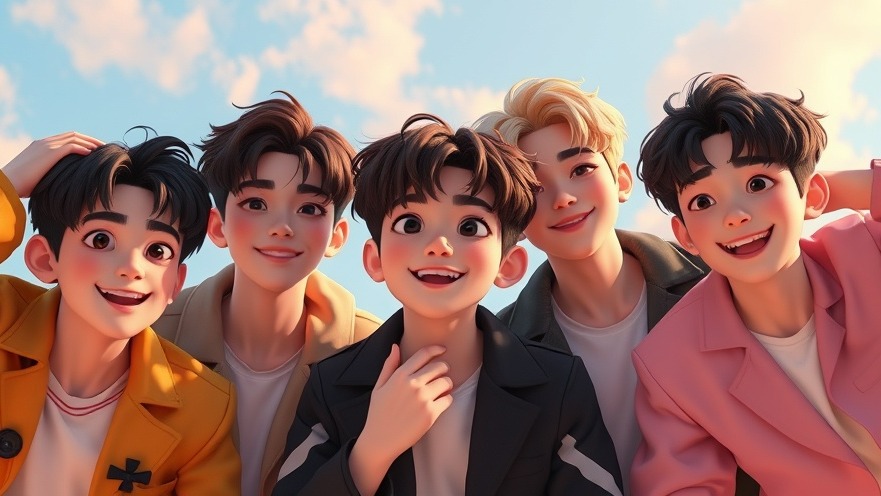
A Revolutionary Animation: The Rise of KPop Demon Hunters
When it comes to animated films, the narrative has usually been dominated by big studios showcasing established characters in familiar stories. However, the recent release of KPop Demon Hunters has broken this mold, becoming Netflix's most-watched film of all time with over 236 million views since its launch in June. This film not only entertains but also sets a new precedent for animated storytelling by introducing a completely original concept with a unique twist.
Understanding the Cultural Significance of KPop
The film, featuring a girl group of demon hunters, highlights the crossover appeal of KPop, a genre significantly influencing global pop culture. It showcases well-rounded characters battling against supernatural foes while juggling their responsibilities as pop stars. KPop has surged in popularity worldwide, leading to a unique blend of music, fashion, and cinematic storytelling.
Box Office Success Defying Expectations
KPop Demon Hunters has also achieved remarkable financial success, grossing an impressive $18 million in its limited theatrical release, which was accompanied by a sing-along version. This feat is particularly noteworthy given the challenges faced by animated films in today’s market, where many traditional studios are opting for live-action adaptations rather than original animations.
The Soundtrack Phenomenon
A major part of the film's success can be attributed to its groundbreaking soundtrack. The film’s music has become iconic, with its lead single, "Golden," maintaining the top position in the US Billboard Hot 100. Four tracks from the soundtrack have made it into the top ten simultaneously, a first for any soundtrack since the Bee Gees’ notable success with Saturday Night Fever in 1978. This musical achievement not only amplifies the film’s appeal but also demonstrates the enduring power of music in storytelling.
Impact on Animation Trends
KPop Demon Hunters stands out in a summer where established studios like Disney and Universal have opted for live-action adaptations of their beloved franchises. This trend often leads to a sense of redundancy in the industry. However, this animated feature has managed to deliver a refreshing narrative that captivates audiences, proving that original storylines and innovative ideas still hold merit in today's entertainment landscape.
Innovative Animation Styles Employed
The film is produced by Sony Pictures Animation, known for its visually stunning work on the Spider-Verse series. KPop Demon Hunters showcases a vibrant palette dominated by pink and purple hues, enhancing its modern aesthetic and aligning perfectly with the high-energy theme. This visualization plays a vital role in keeping audiences engaged, making the animated experience as immersive as the narrative.
Conclusion: A Lesson in Cultural Fusion
KPop Demon Hunters has emerged as more than just a film; it's a cultural phenomenon. By successfully blending elements of music, storytelling, and animation, it represents the future of film in a diverse and interconnected world. This film not only encourages creativity and innovation but also inspires young audiences to embrace artistry from various backgrounds.
If you're eager to see how KPop is revolutionizing the entertainment industry, make sure to watch KPop Demon Hunters for a colorful and musically rich experience that transcends traditional animation.
 Add Row
Add Row  Add
Add 




Write A Comment